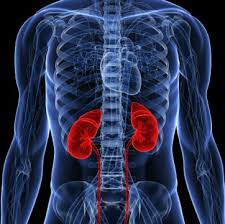The FINANCIAL — An international team of scientists led by The University of Manchester have discovered 179 kidney genes responsible for high blood pressure. High blood pressure, known as “silent killer”, is one of the most common human diseases and remains the key risk factor for strokes and heart attacks.
According to The University of Manchester, high blood pressure – or hypertension- runs in families but the exact mechanisms through which genes influence individuals’ predisposition to hypertension is not clear.
The discoveries published in Nature Genetics, one of the world’s leading journals, shed new light on our understanding of genetic predisposition to high blood pressure.
The study, supported primarily by the British Heart Foundation and Kidney Research UK, was possible through access to huge datasets of human DNA and RNA from possibly the world’s largest repository of human kidney tissue-based “omics”.
The team led by Professor Maciej Tomaszewski at The University of Manchester characterised how information inherited in DNA translates into genetic predisposition to high blood through changes in activity of certain kidney genes.
These studies included comprehensive analyses conducted at various molecular “levels” of kidney tissue combining together DNA, RNA and other “layers” from the same set of kidney tissue samples.
They also used a statistical method –- called Mendelian randomisation – to screen for evidence of causal associations between thousands of variables and millions of genetic variants using the high-performance computing resources hosted at the University of Manchester.
Around 80 per cent of 179 genes discovered by the team have never before been associated with high blood pressure before. Some of these genes can be targeted by existing medicines creating new opportunities to treat high blood pressure, The University of Manchester notes.
Principal Investigator Maciej Tomaszewski, Professor of Cardiovascular Medicine and University of Manchester and a Consultant Physician said: “Hypertension is a key driver of coronary heart disease and stroke and the single most important cause of disability and premature death worldwide.
“Yet, our understanding of the role of genes in development of this condition has been incomplete.”
Professor Tomaszewski is also a member of Manchester Academic Health Science Centre (MAHSC), a partnership between academia and NHS organisations in Greater Manchester to drive health research, improve health education and transform patient care.
Professor Fadi J Charchar, a senior author from Federation University, added: “Our studies filled an important gap in our knowledge through uncovering new genetic variants, kidney genes, molecular mechanisms and biological pathways of key relevance to genetic regulation of blood pressure and inherited susceptibility to hypertension.”
Professor Andrew Morris, from The University of Manchester, commented: “Through our unparalleled access to the kidney tissue resource, we provide evidence for the role of the kidney as the mediator of common genetic effects on blood pressure and a potentially causal role of blood pressure in the development of renal disease.”
First author: Dr James Eales from The University of Manchester said: “By explaining the molecular mechanisms of hypertension embedded in the kidney, our study will ultimately lead to advancements in patient-centred diagnostic accuracy in hypertension.
“It will also lead to new targeted strategies to lowering blood pressure, thereby accelerating progress in precision medicine.
Professor Tomasz Guzik, from the University of Glasgow, said: “These exciting discoveries uncover a range of new possible mechanisms of hypertension some related to blood vessels, kidneys but also – body immune defences and pave the way for the development of novel genetic therapies for blood pressure.”
Professor James Leiper, Associate Medical Director at the BHF said: “We have known for many years that the kidney is a major regulator of blood pressure, but our understanding of precisely how the kidney controls blood pressure is incomplete.
“The identification of this large set of genes that appear to directly affect blood pressure fills in an important missing piece of that puzzle. The researchers have also found a subset of these genes that are a potential new target for the treatment of hypertension.
“This is important because many people taking existing medications still struggle to control their blood pressure. If doctors have more tools to work with then it will help stop thousands of lives being lost each year from this potentially preventable condition.”
Professor Jeremy Hughes, kidney doctor and chair of trustees at Kidney Research UK said: “High blood pressure is both a cause and consequence of kidney disease and we need better treatments to protect patients from harm such as strokes and heart attacks.
“This innovative study harnesses the power of a kidney tissue biobank and state-of-the-art genetic analysis to identify novel genes that link the kidney to high blood pressure. We hope this new knowledge will eventually lead to new treatments that benefit kidney patients.”






























Discussion about this post